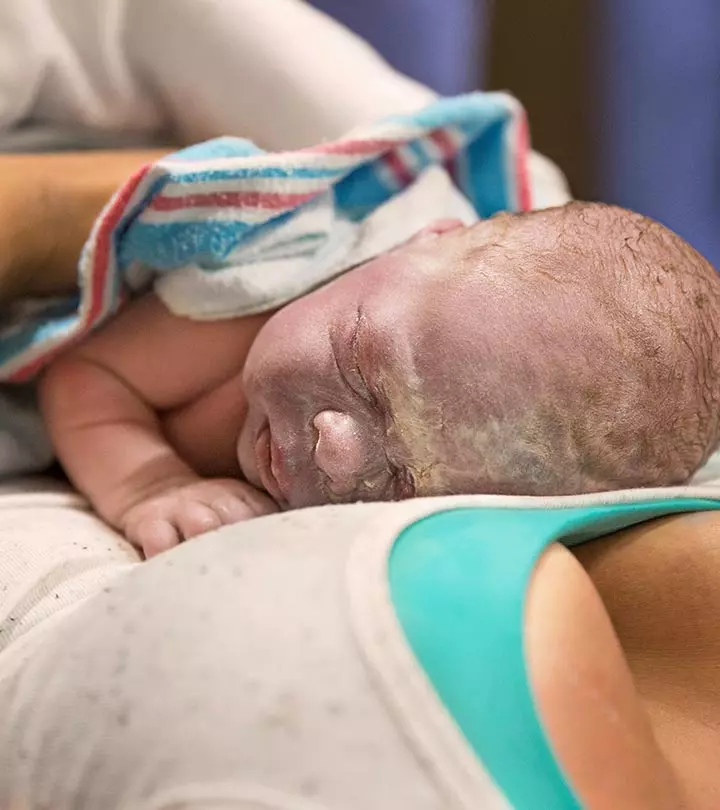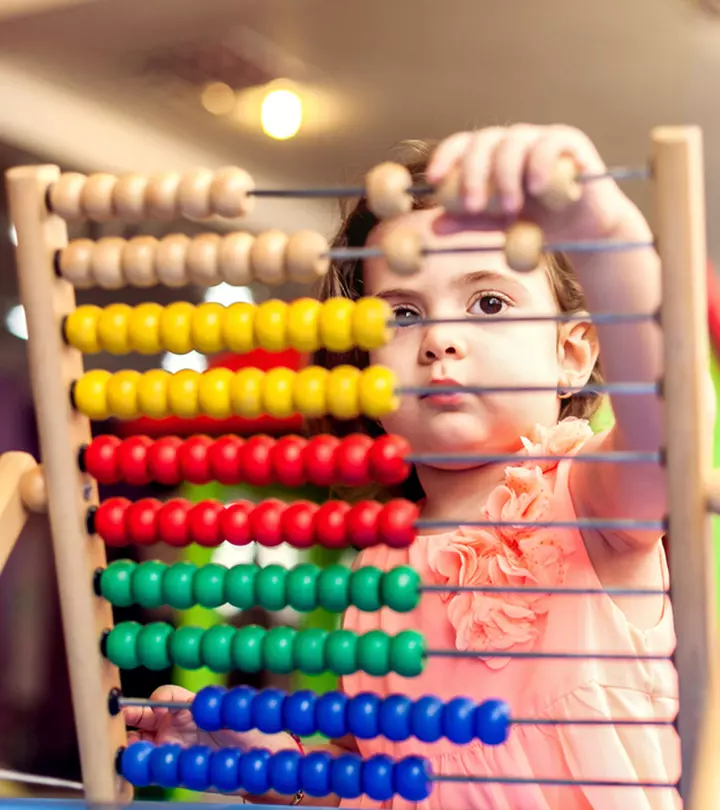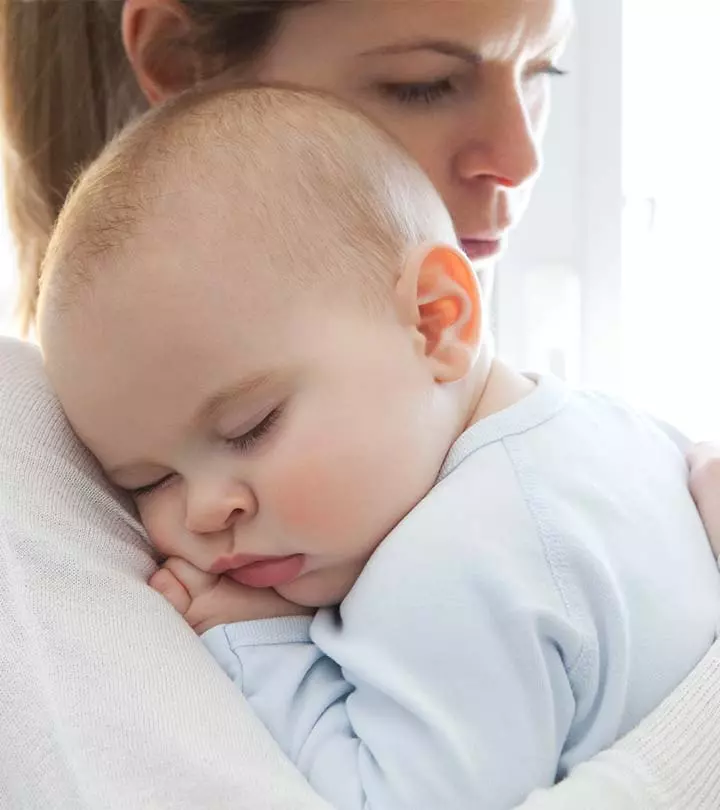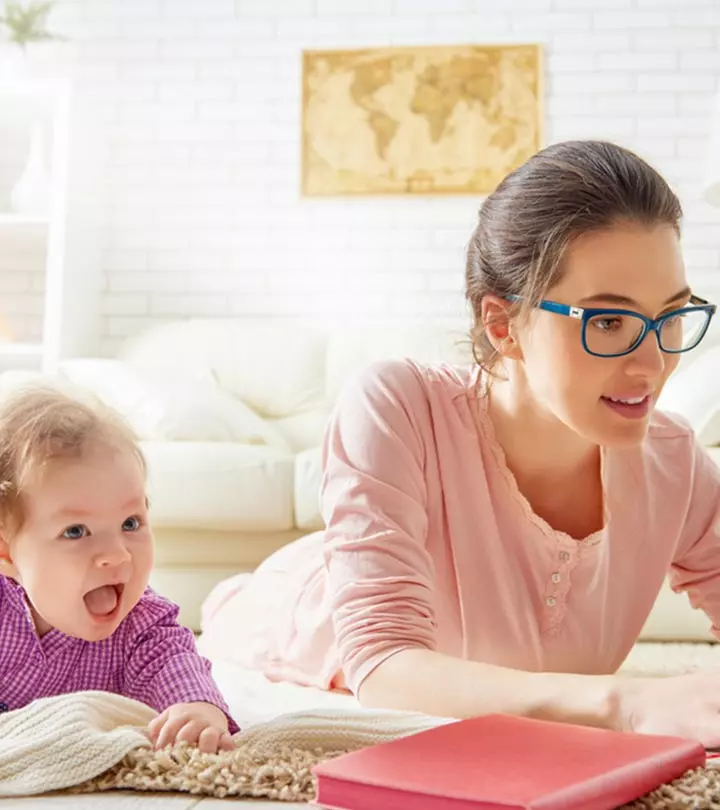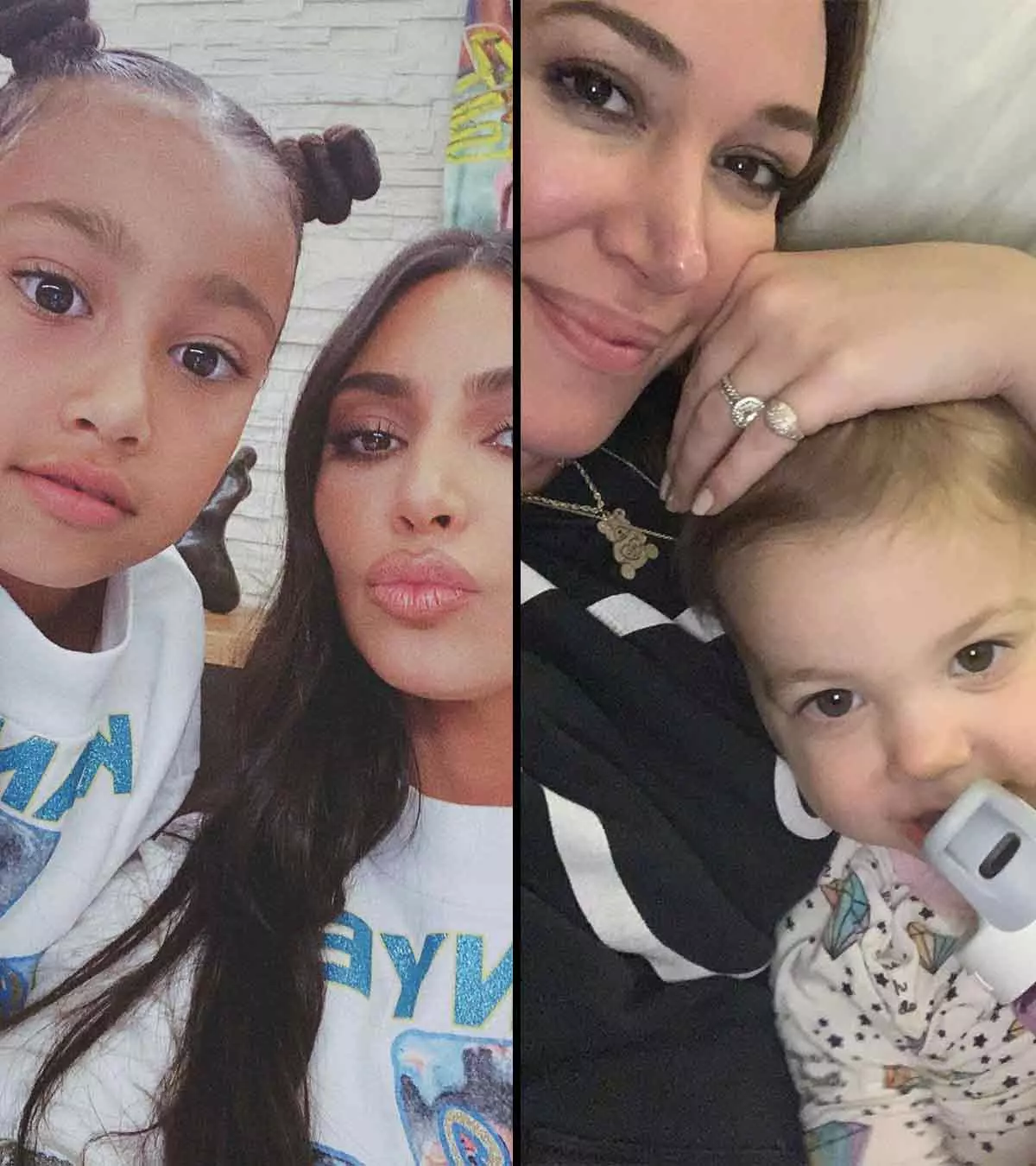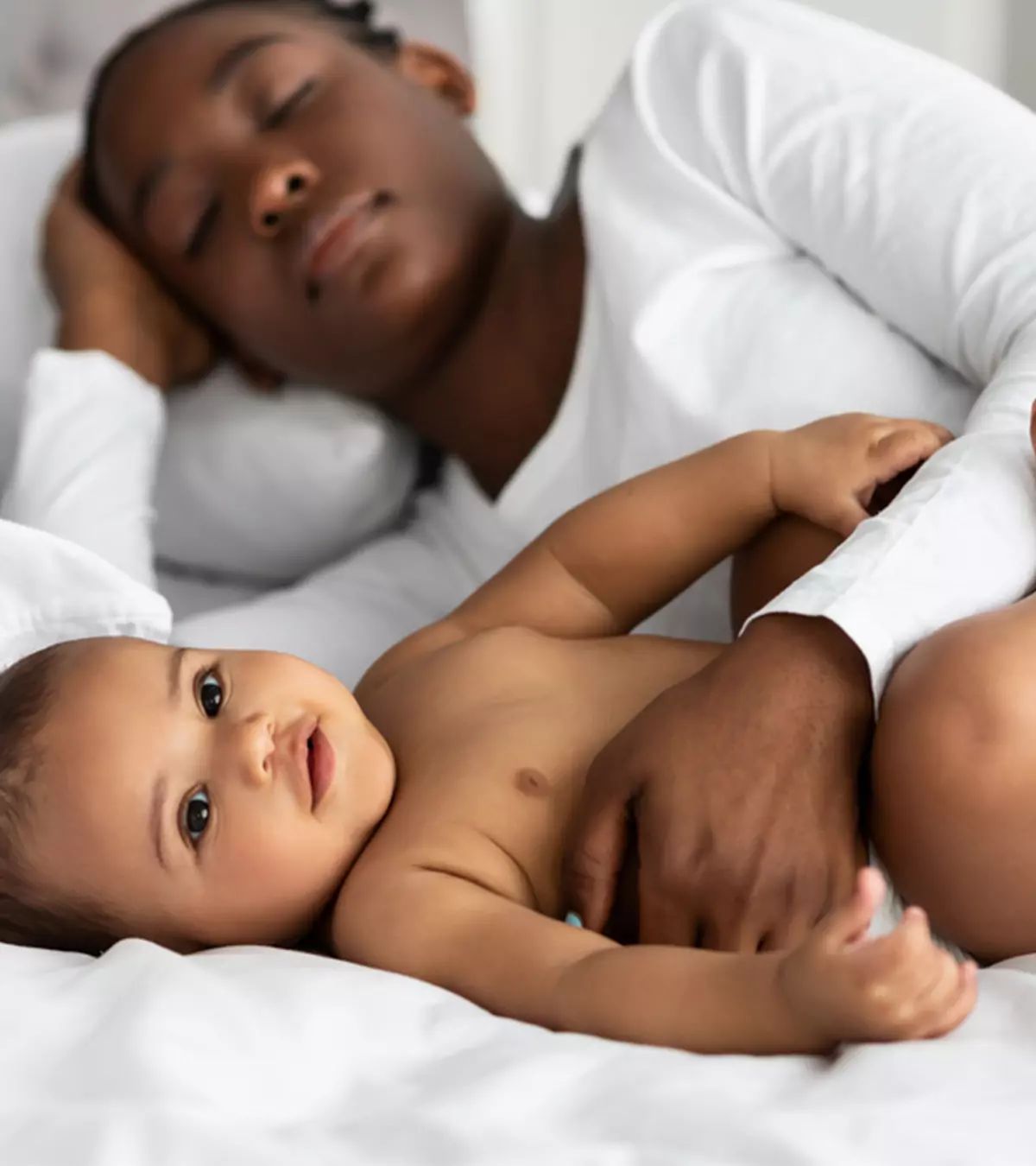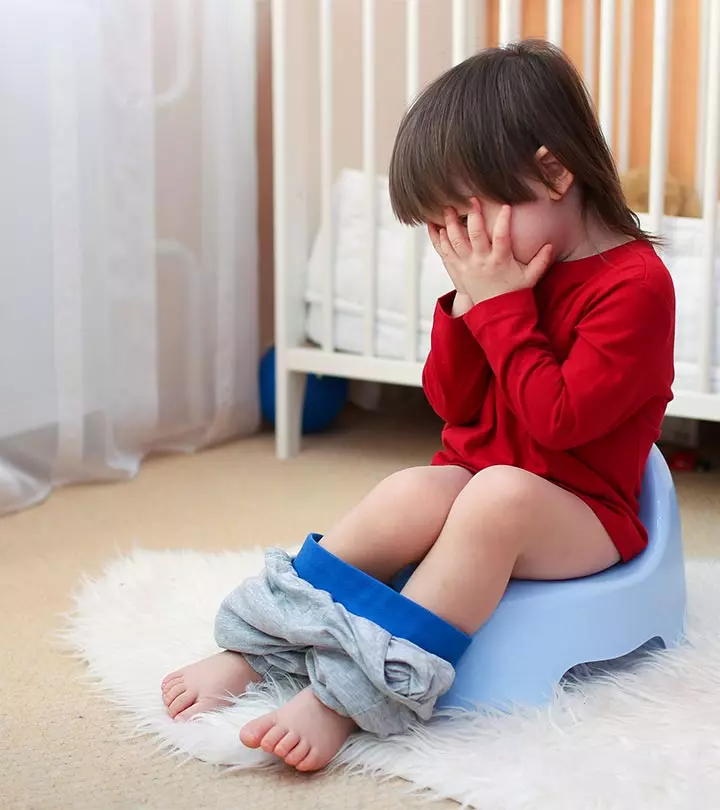

Image: iStock
Did you know that an American child is potty-trained at an average age of three? It is a stark contrast to 50 percent of the world’s children, who are toilet-trained by the time they turn one. One-third of American children cling on to their diapers even until their third birthday!

In the early 20th century, most Americans were of the opinion that a child must be out of diapers by the time he turns one year old. But some laxity seems to have crept in over the past century.
Before the advent of washing machines, parents would ensure that their child sat on the toilet seat much before they celebrated the first birthday. The average age shot up to 18 months once the washable cloth diapers became the norm.
This changed further in the 1960s with a leading diaper company, apart from a renowned pediatrician, vouching for the idea of waiting until the child showed signs of readiness before he is inducted into potty-training.
Eventually, the average age shot up to two years by the 1980s.
As per a study published in The Journal of Developmental and Behavioral Pediatrics in 1994, there was no scientific data that could support the idea of waiting for any emotional or social signs that a child might display as being ready for potty training. By this time, i.e. two decades later, the average age rose up to nearly three years.
The question now arises as to what being ‘ready’ means for a child to be potty-trained and if there are alternatives at all.
If you have come across something called Elimination Communication or EC, then you know what we are talking about. It is synonymous to infant potty training, diaper free baby, born ready, natural baby, etc. – which all point towards your baby’s communication towards toilet training.
The fact that EC is now fast becoming a movement in the west shouldn’t overlook the fact that it has been a tradition in several other parts of the world. It’s a way of a child communicating to you that it has no interest in soiling itself and most babies display the ethos right from birth. Though it could be a non-verbal communication, as a parent, you must take this up more actively and act in time. It is not as much about potty training as it is about your baby’s need to communicate with you about its natural urge.
The ideal time to start practicing Elimination Communication is the first six months of a baby’s life. The sooner you start practicing, the earlier and clearer is the communication between your baby and you. If your baby is fully diapered after six or seven months or has been programmed into soiling the diaper, it might find it hard to use that natural instinct of unsoiling itself and the sensation of needing to empty its bowels.
Steer clear of the notion that EC could be a messy job because being diaper-free doesn’t mean that you shouldn’t diaper your baby at all. Your baby could still be diapered full time or part time, but anytime you see the signs that your baby needs to go, be prepared to whip it off and offer a potty-seater or take him to the washroom at once. All you need is to be receptive and watchful for the signs.
EC is also instrumental in helping you and your child connect and get to understand each other. If you have a newborn, it’s understandable that getting to know each other is time-taking. In fact, EC enables your child to communicate his needs with you. More than you teaching him, it is he who teaches you to be tuned with his nature’s call, other than in events when he is sick, and there could be a lot of misses.
The four classic indicators of a successful EC is that you are aware of your baby’s signals, your baby can communicate either verbally or through sign his need to go, your baby doesn’t have to be reminded to go to potty and eventually your baby can go to the bathroom with no assistance.
It might not work out instantly. But with patience and practice, you will be getting there. By the time your baby is six months old, you can expect some daytime dryness.
The other benefit of EC entails eliminating diaper rash, reducing the risk of UTIs apart from making it an economically and environmentally viable option.
So do you think you could have your baby go diaperless for some time during the day?
Community Experiences
Join the conversation and become a part of our nurturing community! Share your stories, experiences, and insights to connect with fellow parents.




